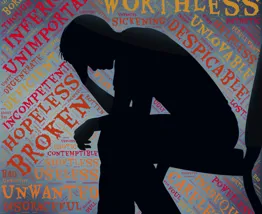Enrol in an online course today for flexible, self-paced learning—no fixed schedule required. Plus, enjoy lifetime access to course materials for convenient revisiting.
Nutrition: The Missing Ingredient in Mental Health

I have practiced as a psychotherapist and nutritionist for 45 years, and this is what I have learned: where there is mental illness, there is poor diet. Where there is mental illness, there is a long history of digestive problems.
By adding the lens of nutrition, diet, and digestion to your clinical toolbox, you will forever change your approach to client care and enhance the efficacy of all your other methods. Nutrition is the missing link in mental health treatment today.
So what is our role as therapists and other mental health professionals?
Psychoeducating clients
There are different levels at which we may help our clients. I suggest beginning with psychoeducation. This involves making linkages between how and what clients eat and drink, and the effect on their mental wellness.
Exploring food addictions is also within the scope of psychoeducation, along with building relational connections by encouraging mindful eating and engaging family in food gathering and preparation.
In systemic work, psychoeducation might also include educating a family about the role of nutrition in ADHD, or introducing enhancing self-strategies into group therapy for survivors of sexual abuse. At this level, nutrition-as-psychoeducation includes coaching for success, and setting the stage for a deeper exploration that may lead to a collaborative relationship or a referral.
We may also choose to obtain more training. While most therapists don’t prescribe medications, we can take psychopharmacology courses so we know about these medications and how to best advise our clients. Knowing the options a client has, even if we do not carry out intricate nutritional supplementation plans, is a basic skill in this field.
Begin with ‘brainbow foods’
Diets consisting of overly processed foods (such as the refined sugars in fruit juices and
sugary drinks, or highly refined rice, pastas, and flours used in breads and bakery goods) are loaded with chemicals and synthetic preservatives, hormones, antibiotics, and food colorings that are known to alter our mood.
In America we call this the SAD (Standard American Diet) because it makes us sad – it does not provide the nutrients our brain and body need to function well. That some of us survive (though rarely thrive) on a SAD diet is just the luck of the draw. For some people illness comes in childhood or not until middle age, but it comes invariably, just as a car without the right fuel eventually sputters to a stop.
One of the most important influences on mental health resulting from a poor or nutritionally deficient diet is the inflammatory response. Inflammation is now understood by many to be as integral to mental illness, including depression, as to physical illness. Decreasing inflammation is fundamental to healing, and the best way to do this is to eat anti-inflammatory foods and avoid pro-inflammatory foods.
I begin with the concept of ‘brainbow foods’: eat all the colours of the (b)rainbow and you will be sure to ingest the various plant pigments that are nutritional and medicinal.
I guarantee you that, as diet and nutrition improve, so do our client outcomes. The very first step as therapists? Begin with you!
PESI UK will be hosting a free live video webinar with Leslie Korn, Food and Mood: Nutrition Essentials for Mental Health, from 5-6pm on Thursday 26th November. Click here to register for free.


















